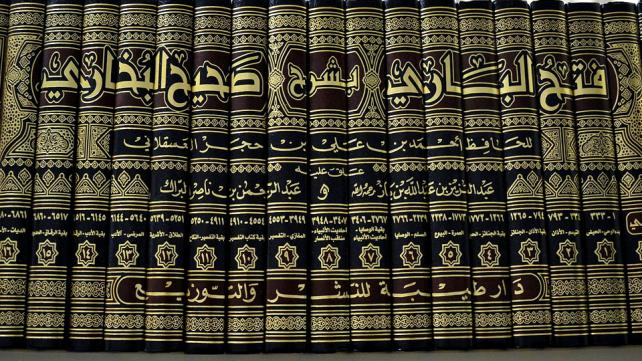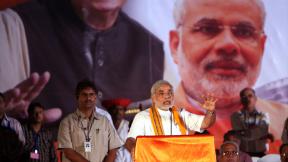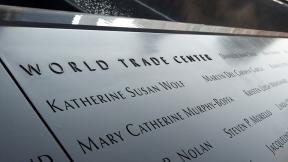
It is abusive to partially quote the Prophet Muhammad, peace and blessings be upon him, thus distorting what he said. How many times have you heard the Hadith "Paradise is under the shadow of the swords?" I have read and heard this so many times that I assumed that the Prophet, surrounded by enemies and a small Muslim community, must have said this to encourage fellow believers. Well, that's only partly true.
Here is the full text of what he actually said:
"Do not look for a fight with the enemy. Beg God for peace and security. But if you do end up facing the enemy, then show endurance and remember that Paradise is under the shadow of the swords." This is recorded by Sahih al-Muslim.
The full Hadith pretty much fits with the historical context and the character of the Prophet, who was sent as a mercy to humanity, and cared so deeply about not just human beings, but animals and other creatures as well. He would go out of his way to maintain peace and avoid a war, unless the enemy forced him to it. That is why there is no word in Islam similar to "holy war". War is never holy. It was always a last resort forced upon the Muslims.
But it is the earlier, partial reading of the Hadith that is oft repeated by firebrand speakers, since it fits into their theology of anger, while the full Hadith negates that culture.
On one occasion, I heard a Muslim argue with the help of another partial Hadith: "help your brother whether he is a wronged or is a wrong doer." The person was using it to justify political support of Muslims, regardless of if they are right or wrong. This behavior goes against the Quran, which asks Muslims to be just even towards their enemies, even at the risk of hurting their self-interest. (Quran 4:135). The Prophet cannot go against the Quran. What he said in a lengthy statement included the explanation that "the way you support your wrong doer brother is by stopping him from that bad action" (as reported by Sahih al-Muslim).
This above-mentioned selective use of Hadith to support nationalistic behavior is contrary to Islamic principles. Muslims must never subscribe to the "My Country Right Or Wrong" theory.
Here are some of the conclusions which I would like to draw from the above two incidents. These are in no way isolated cases:
1) This is abuse of the Prophet, God's peace and blessings be upon him. Please seek forgiveness from your Creator.
2) Lying is a major sin in Islam. It is more so when you distort a teaching of the Prophet.
3) God criticizes the People of the Book for this behavior in the Quran as a warning to Muslims to avoid taking things out of context.
4) This careless attribution to the Prophet can land a person in the Hellfire: "A person who intentionally attributes a false statement towards me will find a place for himself in Hellfire." (Sahih al Bukhari). In another Hadith, the Prophet said: "Do tell others about me. There is nothing wrong about it. But a person who knowingly attributes a false thing to me, he will make his abode in the Hellfire." (Sahih al Muslim).
5) Remember the etiquettes of narrating a Hadith. Based on the above explanation, it will be good to adopt the following Adab (etiquette):
- Avoid stating a Hadith if you do not know the accurate wording.
- Avoid sharing a partial Hadith, since you risk losing the sense of what the Prophet was saying.
- Don't draw big conclusions from a small statement unless you study the context.
- Remember that the first principle of Hadith authenticity test is that it must not contradict Quran.
6) Scholars' Wisdom: This abuse of the Hadith was probably the major reason why in my Islamic seminary, my teachers, which included one of the grand muftis of Pakistan, wanted us to first study all other aspects of Islamic knowledge, including the Arabic language, grammar, literature, Quran, fiqh, usoolul fiqh, usoolul hadith, rhetoric, etc. And only at the end would we begin reading Hadith textbooks.
7) There are two disciplines that scholars employ before determining the proper use of a Hadith. One is called Riwayah and the other is called Dirayah. The scholars of Hadith focus essentially on Riwayah, which helps determine the authenticity of the chain of narrators of a Hadith. The scholars of Fiqh (Islamic jurisprudence) use the tools of Dirayah to determine how a Hadith will be used in reaching a conclusion, taking into account the whole spectrum of Islamic knowledge.
If you are serious about reading Sahih Al Bukhari and other classic Hadith collections, you should spend some time learning how a Hadith should be used and understood. The relevant disciplines of Islamic knowledge which deal with this topic are Usoolul Hadith, Usoolul Fiqh, and Ilm al Maqasid. Until then, it is a good idea to stick to the collections compiled for the laypersons, like Riyadhus Saliheen of Imam Nawawi, instead of heavy- duty classic Hadith books.
Conclusions
What the Prophet left for us is essential. Without the Quran and his Sunnah we are lost. My request for us to be careful is not to be confused with seeking daily guidance from his teachings. Rather, I am advising that we avoid the tendency to issue a Fatwa equipped only with a partial Hadith, ignoring the whole teaching of the Prophet. God's Mercy and Blessings be upon him.
May God forgive us for not being careful with our tongues. He is indeed Merciful and Mercy-Giving.
"Fathul Bari bisyarhi Shahih al-Bukhari Imam Khairul Annas" by Imam Khairul Annas - Own work. Licensed under Creative Commons Attribution-Share Alike 3.0 via Wikimedia Commons - http://commons.wikimedia.org/wiki/File:Fathul_Bari_bisyarhi_Shahih_al-Bukhari_Imam_Khairul_Annas.JPG#mediaviewer/File:Fathul_Bari_bisyarhi_Shahih_al-Bukhari_Imam_Khairul_Annas.JPG








Comments
It is an excellent article. It should be circulated far and wide, especially to the People of Bida'a, who use hadith in isolation and out of context to justify their bida'at. May Allah SWT take us out of the darkness of ignorance, and guide us to the right path. Ameen.
Location
Asalamu alaykum,alhamdulila, the more i read about islam the more i love it. im trying to be a better muslima and thank you for this knowledge. it is so helpful. jazak allah khair
Location
May be you should send some of this article to the guy that hosts the 700 club,
Location
Thank you for bringing this article to light....I too am saddened by the abuse of our beloved prophet and the misquotings to benefit political and personal causes. Part of the problem of what is happening today to Muslims, is they don't correct other Muslims, they just fight with them. We are truly dissappointed by our Imams and others who claim to love Islam, we hear such misleading, untruthful words that have nothing to do with real Islam. I hope mosque leaders will read this article and get some wisdom.
Location
this is great . im definateley going to show this to one of my fellow muslim brother who is always up for fights and trying to justify them with misinterpretations of our beloved prophet peace be upon hims teachings.
Location
The article brings up an important issue, I have experienced this first hand not only in this country but also in the so called Islamic countries. May Allah lead to straight path.Salaam Alaikum
Location
Excellent article, I agree with you 100% we (muslims) have a BAD habit of quoting ahadith out of context, misquoting them and quoting only half (whichever half we prefer). God help us all. Then we have a habit of Bigotry (we are better than others). kind of like trying to do God's judging for Him. Astaghfirullah! May He guide us all - ameen
Location
AssalamualaikumAllahamdulillah!!! That is the best article I have seen in a long time. If only that could be explained to all the so-called Ullamah and the Maulanas and "Muslim Councils" in the UK.They are all people using Islam to further their politcal motives and not the teachings of Islam and our beloved Nabi (S.A.W).May Allah guide us all.
Location
Pages
Add new comment